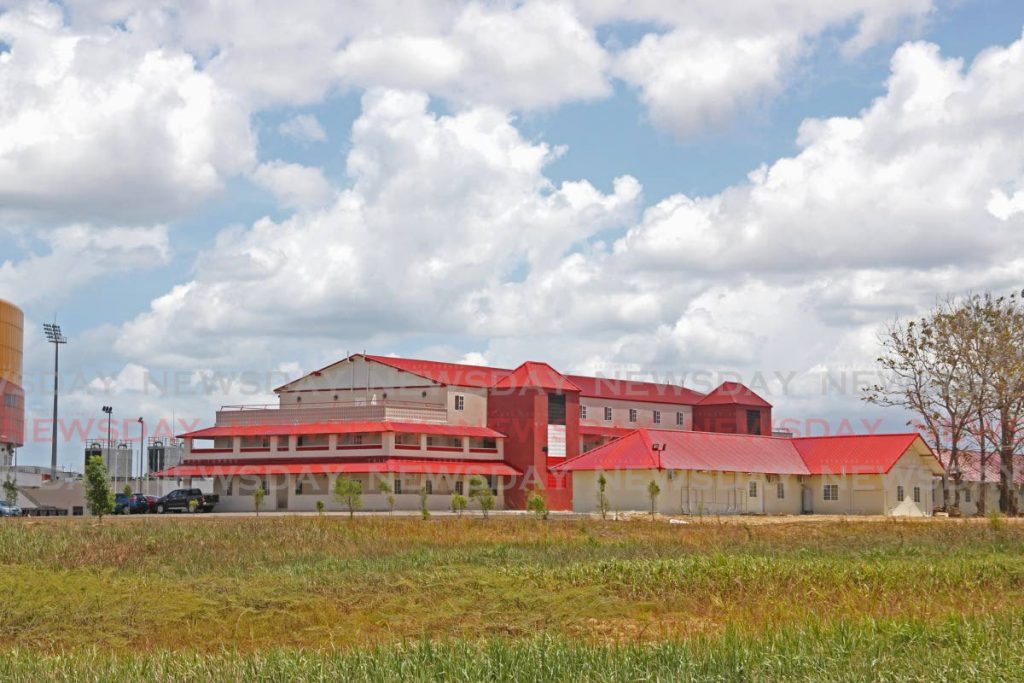Why are we ignoring sport’s multi-billion-dollar health and wellness market?

It is only when the Caribbean sports industry deeply connects with tourism and healthcare that we can unlock real value, boost our combined brand, and start making serious money.
The global US$12 trillion healthcare market is making room for the increasingly greater nexus between sports and health.
The domestic Caribbean market for traditional sports entertainment – media rights, ticket sales and merchandising – is too small to support a viable sports industry. The only way to generate revenue is to identify international demand for our athletes and determine where our brand will go furthest.
Yes, as a region, we punch above our weight. Grenada, The Bahamas and Jamaica are all in the top 20 when you rank countries by the number of Olympic medals won per capita. At number 22, TT is not far behind. For comparison, the United States ranks 39.
Yet those numbers don’t mean as much when it comes to the revenue generated. That is because sports entertainment is largely a winner-take-all industry, and one dominated by team sports.
According to Orbis research, the global sports industry is worth some US$800 billion. But outside the top team-sports leagues, and occasional global events like the Olympics and football or cricket world cups, potential viewership plummets.
Caribbean football is globally lacklustre. Other team sports aren’t worth talking about.
Now that doesn’t mean that we aren’t generating better-than-average athletes who continue to improve. But the brutal truth of a winner-take-all market is that it is only when you start generating superstars that you gain market share. Talent takes a long time to mature.
The very best will always command significant viewership, as Usain Bolt knows well. But how many people remember the names of the bronze medallists or ever tune in to watch them? The few athletes who have carved out a niche are those who have managed to build brands across industries.
To expand the Caribbean industry, we must tap our geographic advantages and look to cross-industry partnerships for real growth. This means tapping health, wellness, tourism and technology.
In tourism, for instance, we already have a strong advantage. Given a choice of sunning yourself in Liverpool, Manchester or Barbados, where would you end up?
Until recently, TT, with its larger facilities, was well positioned. The country started negotiations with at least one major football club to establish a training centre here. But the club couldn’t risk one of its stars being injured. One look at our healthcare facilities told them they weren’t up to scratch. The deal fell apart.
Meanwhile, in the US, the Journal of the American Heart Association estimates the personal cost of inactivity in America at US$2,500 annually — not including lost productivity. Globally, fitness and wellness are booming, especially among millennials and Generation Z.
We still have the opportunity to position ourselves as a global wellness destination. In the same way that people rave about Blue Zone food destinations like the Greek islands, whose inhabitants have their diets to thank for longer lives, we can brand the Caribbean as the spring of wellness.
The pitch? Come to the Caribbean for fitness and wellness-focused trips, supported by an ecosystem including our top athletes. Rehabilitation and sports therapy can be tied into outpatient care at health tourism destinations like Health City Cayman Islands (more of which we should be building).
If we get this right, and stop treating health and sports as two different industries, the Caribbean can draw the investment we need to be able to invite top clubs and teams to play “destination” matches that draw fans and tourists alike. We can build the ecosystem by setting up linkages with local athletes and organising side games.
As we market this, technology is the clear path to reach customers. There is a plethora of new apps connecting fitness mavens globally. Fitnet Live Coach connects people with personal trainers for less expensive virtual sessions and Gorilla Workout aims to “gamify” exercise monitoring.
Most importantly, this can drive improvements to our overall health systems. RTI International has estimated the cost of diabetes and hypertension to TT alone at $6.8 billion annually. As far back as 2013, the University of Sydney estimated that a lack of physical activity alone was costing the country some $228 million a year.
It has been a long time since Caribbean sports could be dismissed as another sequel to Cool Runnings. If we work hard to capture the emerging trends in health and wellness, we can command global attention and make serious cash.
(This is an excerpt of a piece that will appear in the TT Olympic Committee’s 2021 commemorative magazine.)
Kiran Mathur Mohammed is an economist and co-founder of medl, an IDB Lab and Microsoft backed health tech company. He can be reached at kmmpub@gmail.com.


Comments
"Why are we ignoring sport’s multi-billion-dollar health and wellness market?"